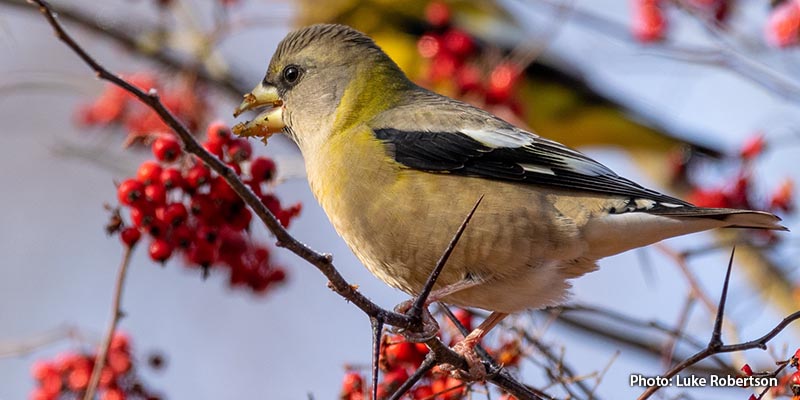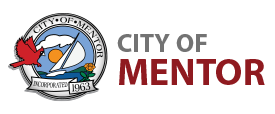
Just because it’s winter doesn’t mean have to put away your binoculars and bird book. In fact, winter is an excellent time to go birding. Birds are easier to spot without leaves on the trees or vegetation in the underbrush as you take a winter bird walk. Besides our common year-round birds, there are some species that can only be seen during the winter in Northeast Ohio.
On your next visit to the Mentor Marsh or Mentor Lagoons Nature Preserve, be on the lookout for the Snowy Owl. A native of the Arctic, the bird is known to migrate south, especially when they have had a good nesting season and many young are hatched. Over the last several years there have been several sightings of this beautiful bird right here in Mentor. Other birds to look for include northern gulls and winter finches.
You don’t even need leave your house to participate in winter birding. They will come to you as long as you provide some encouragement – like a feeder and a birdbath. During colder months when insects and seeds are scarce, providing a reliable source of food and water will draw many of the overwintering birds right to your window. Stock your feeder with high-fat content food like sunflower seed, thistle and suet. Common overwintering natives include cardinals, blue jays, nuthatches, goldfinches and juncos.
The placement of your feeder will also make a difference in what birds will visit. Selected a protected location that offers a shield from wind and snow. Also, our feathered friends prefer nearby places to perch including branches of evergreen shrubs and trees.
Adding a heated plastic birdbath nearby will ensure that your feeder is a popular stop for your backyard birds. During Ohio cold snaps, unfrozen sources of water are hard to come by, so providing a reliable water source will draw birds of all kinds.
Be sure that you routinely clean your bird feeder before filling it with new seed. Birds can catch and spread disease when eating from a dirty feeder. When the feeder is nearly empty, dump out whatever remains in the bottom then wash it with a mild dish soap in a bucket. You may want to purchase a small brush to make sure all traces of leftover seed and dirt come off. Thoroughly rinse and dry the feeder before refilling. Cleaning the birdbath also is a must to maintain a healthy bird population.
So whether you put on your parka, grab your binoculars and head out to the Lagoons…or watch your birdfeeder from the warmth of your living room, take time to enjoy the winter birds of Northeast Ohio.
